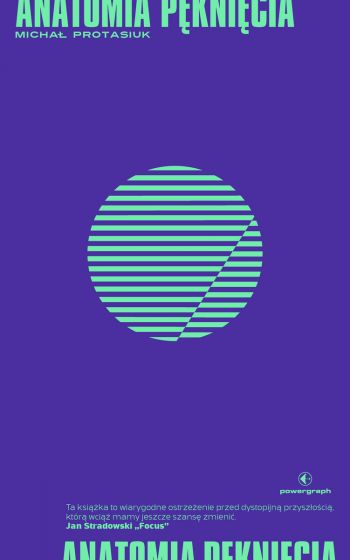A form of near-future science fiction, these six futuristic parables concern individuals who define themselves through the prism of technology.

A form of near-future science fiction, these six futuristic parables concern individuals who define themselves through the prism of technology.

Translation rights: Powergraph, kasia.sienkiewicz-kosik@powergraph.pl
The array of potential changes following life after isolation covers many areas: new ways of electing a president; hitherto unprecedented methods of influencing voters; an Internet and applications that cause illness; social bubbles; ‘fake news’; artificial intelligence. A dystopian and scientific world mingles here with traditional reality. It makes for an interesting patchwork pattern, depicting on the one hand eternal values, and on the other, a modern, high-tech identity. The essential truth about people lies hidden below the surface, where theories and scientific analyses collide with old axioms. Nevertheless, it is the human element that turns out to be more important than mechanical and technical progress. The characters’ relationship with technological advances appears at times to reflect their moral compass.
Selected samples
She climbed her first peaks in a headscarf at a time when women in the mountains were treated by climbers as an additional backpack. It was with her that female alpinism began! She gained recognition in a spectacular way. The path was considered a crossing for madmen. Especially since the tragic accident in 1929, preserved … Continue reading “Halina”
First, Marysia, a student of an exclusive private school in Warsaw’s Mokotów district, dies under the wheels of a train. Her teacher, Elżbieta, tries to find out what really happened. She starts a private investigation only soon to perish herself. But her body disappears, and the only people who have seen anything are Gniewomir, a … Continue reading “Wound”
A young girl, Regina Wieczorek, was found dead on the beach. She was nineteen years old and had no enemies. Fortunately, the culprit was quickly found. At least, that’s what the militia think. Meanwhile, one day in November, Jan Kowalski appears at the police station. He claims to have killed not only Regina but also … Continue reading “Penance”
The year is 1922. A dangerous time of breakthrough. In the Eastern Borderlands of the Republic of Poland, Bolshevik gangs sow terror, leaving behind the corpses of men and disgraced women. A ruthless secret intelligence race takes place between the Lviv-Warsaw-Free City of Gdańsk line. Lviv investigator Edward Popielski, called Łysy (“Hairless”), receives an offer … Continue reading “A Girl with Four Fingers”
This question is closely related to the next one, namely: if any goal exists, does life lead us to that goal in an orderly manner? In other words, is everything that happens to us just a set of chaotic events that, combined together, do not form a whole? To understand how the concept of providence … Continue reading “Order and Love”
The work of Józef Łobodowski (1909-1988) – a remarkable poet, prose writer, and translator, who spent most of his life in exile – is slowly being revived in Poland. Łobodowski’s brilliant three- volume novel, composed on an epic scale, concerns the fate of families and orphans unmoored by the Bolshevik Revolution and civil war and … Continue reading “Ukrainian Trilogy: Thickets, The Settlement, The Way Back”























































































































































































































































































